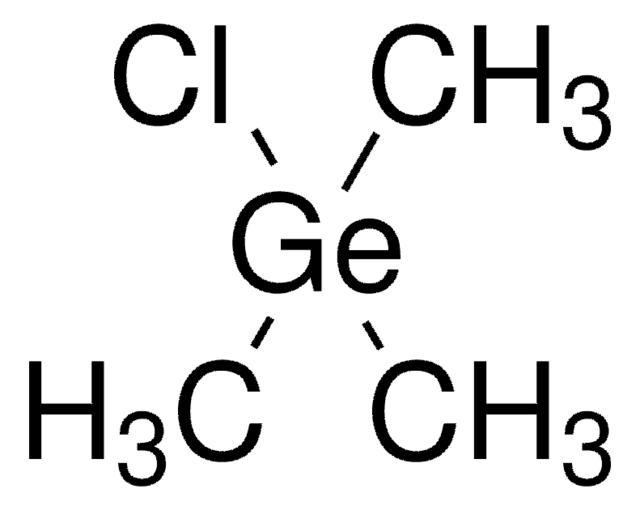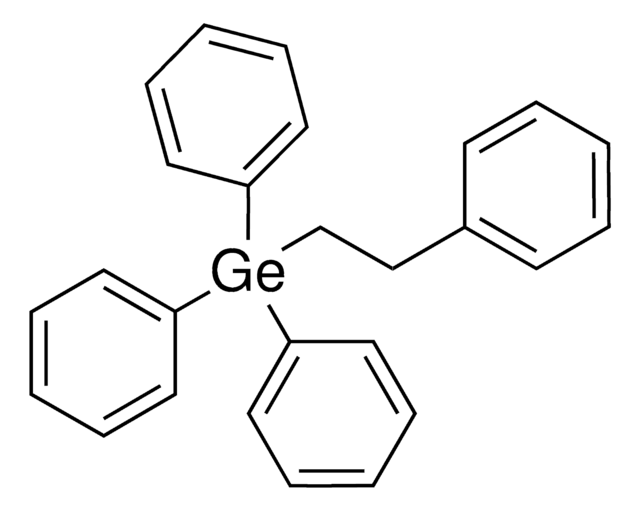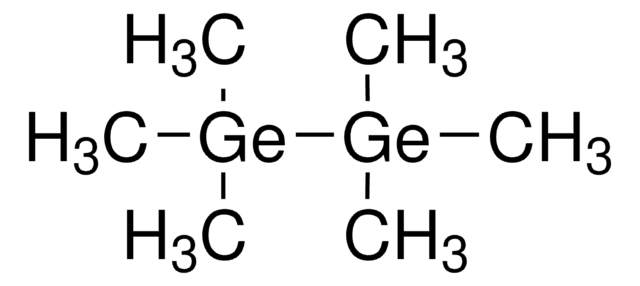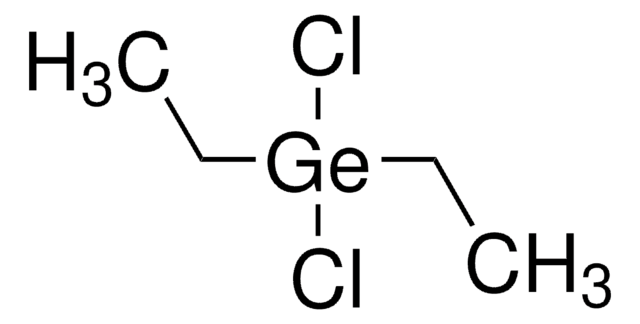424838
Triphenylgermanium hydride
Synonym(s):
Triphenylgermane, Triphenylgermanyl hydride
About This Item
Recommended Products
Quality Level
form
powder or crystals
solid
reaction suitability
core: germanium
reagent type: reductant
mp
40-43 °C (lit.)
SMILES string
c1ccc(cc1)[GeH](c2ccccc2)c3ccccc3
InChI
1S/C18H16Ge/c1-4-10-16(11-5-1)19(17-12-6-2-7-13-17)18-14-8-3-9-15-18/h1-15,19H
InChI key
NXHORDQDUDIXOS-UHFFFAOYSA-N
Signal Word
Warning
Hazard Statements
Precautionary Statements
Hazard Classifications
Acute Tox. 4 Dermal - Acute Tox. 4 Inhalation - Acute Tox. 4 Oral
Storage Class Code
11 - Combustible Solids
WGK
WGK 3
Flash Point(F)
Not applicable
Flash Point(C)
Not applicable
Personal Protective Equipment
Choose from one of the most recent versions:
Already Own This Product?
Find documentation for the products that you have recently purchased in the Document Library.
Customers Also Viewed
Our team of scientists has experience in all areas of research including Life Science, Material Science, Chemical Synthesis, Chromatography, Analytical and many others.
Contact Technical Service










